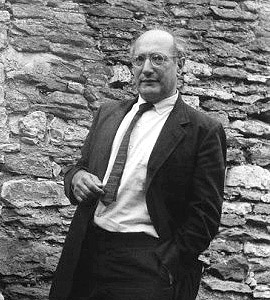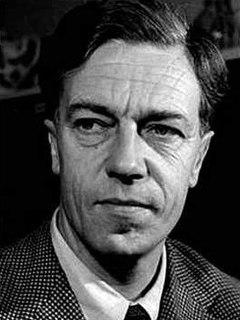A Quote by Mark Rothko
(I am) dealing not with the particular anecdote, but rather with the Spirit of Myth, which is generic to all myths at all times.
Related Quotes
The heart of Christianity is a myth which is also a fact. The old myth of the Dying God, without ceasing to be myth, comes down from the heaven of legend and imagination to the earth of history. It happens - at a particular date, in a particular place, followed by definable historical consequences. We pass from a Balder or an Osiris, dying nobody knows when or where, to a historical Person crucified (it is all in order) under Pontius Pilate. By becoming fact it does not cease to be myth: that is the miracle.
Myths are about the human struggle to deal with the great passages of time and life--birth, death, marriage, the transitions from childhood to adulthood to old age. They meet a need in the psychological or spiritual nature of humans that has absolutely nothing to do with science. To try to turn a myth into a science, or a science into a myth, is an insult to myths, an insult to religion, and an insult to science. In attempting to do this, creationists have missed the significance, meaning, and sublime nature of myths. They took a beautiful story of creation and re-creation and ruined it.
I do think that this represents a kind of shift towards myth, a recovery of myth, largely through the popularity of writers like Philip Pullman. Somehow myths have returned as a serious subject. It used to be scorned...really scorned. It was part of a nursery tradition, and it was also rather tainted - but not in an immovable way - by the association with right-wing ideologies after the World Wars.
It helps to regard soul as an active intelligence, forming and plotting each person's fate. Translators use "plot" to render the ancient Greek word mythos in English. The plots that entangle our souls and draw forth our characters are the great myths. That is why we need a sense of myth and knowledge of different myths to gain insight into our epic struggles, our misalliances, and our tragedies. Myths show the imaginative structures inside our messes, and our human characters can locate themselves against the background of the characters of myth.
Here is a myth for you if myths are your pleasure: "There is no more opportunity in this world." Most people held this false belief fifty years ago, the majority agreed with it five years ago, and practically everyone clings to it today. Clearly, this myth will also be the screaming rage in the future. Hang on to this myth, and you are destined to miss great opportunities for the rest of your life.
Myth is a tale once believed as truth; believed, it is not myth, but religion. A tale once religiously believed that has come to be called a myth is something of religion corrupted with disbelief. What are beliefs for some societies but myths for others cannot fill spiritual vacancies in the life of those others.








































